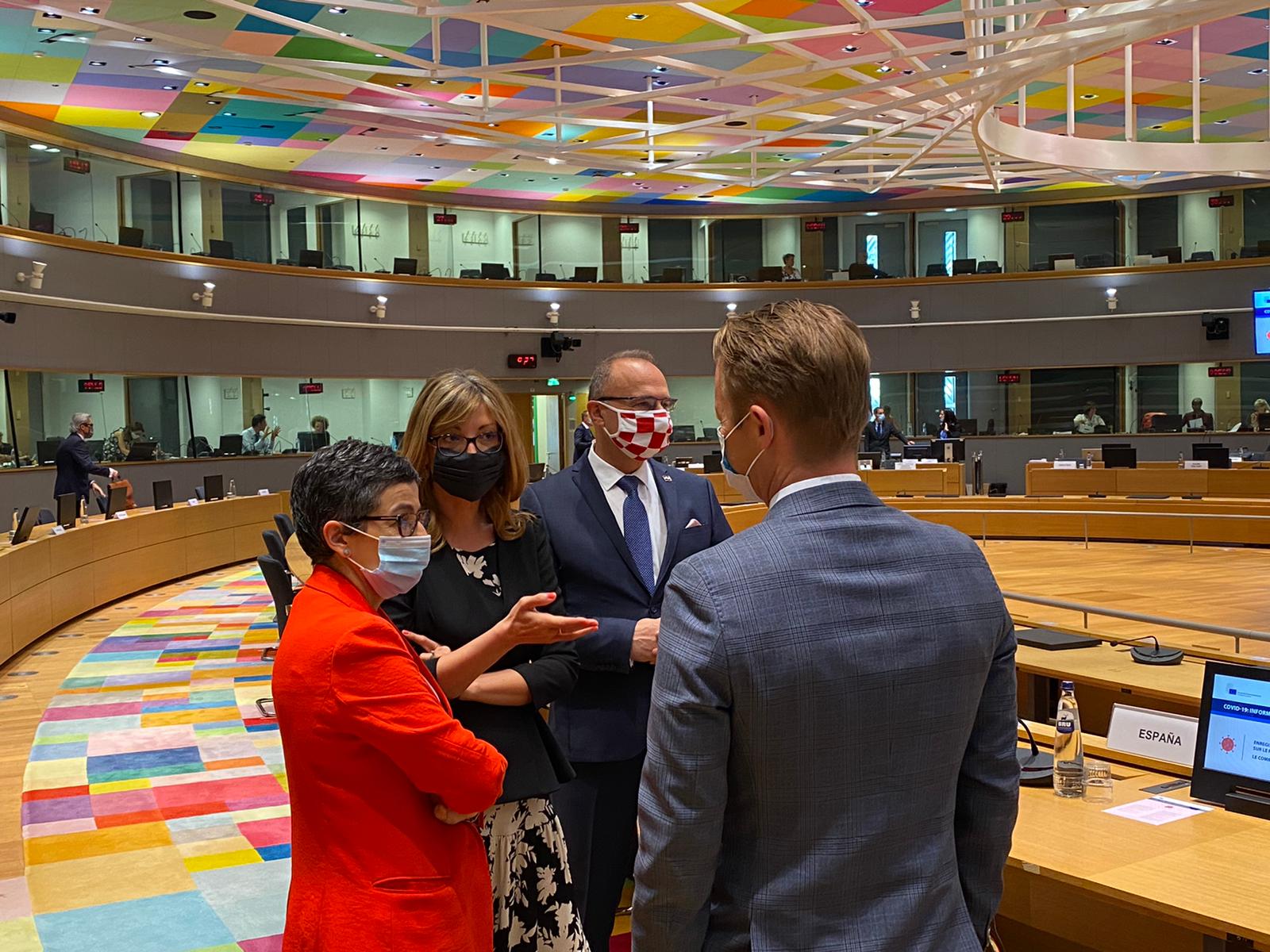EU Foreign Ministers Discuss Turkey and Latin America at First In-Person Meeting after Pandemic
13 July 2020 News
Deputy Prime Minister and Minister of Foreign Affairs Ekaterina Zaharieva took part in today’s Foreign Affairs Council in Brussels. This was the first in-person meeting of the EU’s top diplomats since the start of the COVID-19 crisis. The ministers held a discussion on EU relations with Turkey and discussed the situation in Latin America and the Caribbean as well as a wide range of current foreign policy issues.
The ministers voiced concern over the World Health Organization’s conclusion that Latin America and the Caribbean were the new locus of virus spread and over expectations that the severe repercussions of the crisis would exacerbate the current social, economic and political challenges. The ministers considered the crisis an opportunity to strengthen bilateral and multilateral cooperation with Latin American and Caribbean countries on the basis of shared interests and values. They emphasized the importance of finalizing the EU’s trade agreements with MERCOSUR, Mexico and Chile as soon as possible.
Bulgaria supports the EU’s lasting commitment to Latin America, the Caribbean and the “Team Europe” package, which is part of the EU’s response to the COVID-19 pandemic. Some EUR 1.5 billion have been set aside to provide financial assistance to Latin America and the Caribbean in order to help address the health crisis and facilitate the economic recovery of the region.
The foreign ministers held a strategic debate on EU-Turkey relations. Solidarity with Cyprus was confirmed in the context of the growing tensions in the eastern Mediterranean and it was asserted that the situation did not conform with the EU’s expectations of a NATO ally and a key partner. The top diplomats of the 27 countries discussed the EU’s possible actions aimed at reversing the negative trend in relations with Turkey.
Bulgaria was one of the countries that emphasized the need for de-escalation, for restoring trust and for dialogue on a number of topics of common interest such as migration, the security energy supply, infrastructure, trade, the economy and combatting terrorism. Bulgaria pointed out the need to continue to provide EU financial assistance for refugees in Turkey. Minister Zaharieva expressed her support for the active role of Josep Borrell, High Representative of the Union for Foreign Affairs and Security Policy, and the clear messages that were sent during his recent trip to Ankara.
In their discussion on current affairs the foreign ministers confirmed the conclusion that China’s new National Security Law will be detrimental to Hong Kong’s high level of autonomy and went on to exchange opinions on a possible concerted EU reaction. They made an appeal for an end to foreign involvement in the conflict in Libya, for a long-lasting ceasefire, for restoration of the political processes under the auspices of the UN and for the implementation of the Conclusions of the Berlin Conference.
Josep Borrell, High Representative of the Union for Foreign Affairs and Security Policy, briefed the ministers on his diplomatic efforts on the Middle East peace process. He offered a brief presentation of the foreign policy aspects of the upcoming video conference of the EU leaders and India, his view on the state of play as regards the EU-Africa Strategy and the preparations for the EU-African Union summit meeting planned to take place later in 2020, as well as on the prospects for talks on a new cooperation agreement between the EU and the states of Africa, the Caribbean, and the Pacific (Post-Cotonou) and developments concerning the situation in Venezuela.




